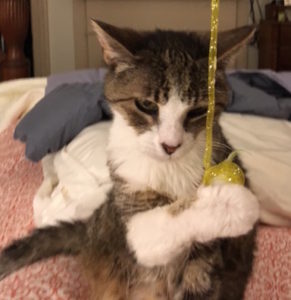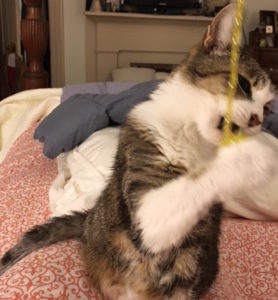Paying Bills
You will need to pay off the bills with monies from the estate account. You will also need to close out credit card accounts, etc. You must send them “your” documents, along with a letter telling them that you are the Executor/Administrator. I recommend sending each packet Return/Receipt or at least Registered Mail.
A couple of things that are important for you to know about bills and accounts:
*The debts should be paid first
*A decedent’s debts do not follow the heirs. That means, if you run out of money, you (or the other heirs) are not personally responsible for taking up the mantle and paying off the debts. If this happens, I would meet with an attorney to decide how to handle any remaining creditors.
Debt and Demand
In many states there is a procedure called “Debt and Demand” where the Commissioner of Accounts publishes an advertisement asking all creditors to come forward within a given period of time. The Debt and Demand typically comes late in the process, not long before the estate is closed. It’s a last-ditch effort to pay off any bills that are hanging out there in the stratosphere. If no one comes forward within this period, then they can’t come back and sue the estate (or the heirs).
Credit Cards, Insurance Policies, etc.
You are going to need to send your “documents” to each credit card company, insurer, AT&T, Verizon, Comcast, etc. so that you can close out the account and pay the balance.
This may take some time, because you may not be able to find bills, etc. right away. Just keep at it…..
Also, you will need to contact online sites such as Facebook and Genealogy.com to let them know that your loved one has passed away. They may want to see the Death Certificate and your “Appointment” letter from the Clerk of the Court.
Taxes
I would recommend that you use a professional tax preparer or a CPA.
The IRS requires some specific documents, in addition to your documents (letter from the court, IRS EIN, death certificate), you will need to send them:
*Form 1310 Statement of Person Claiming Refund Due a Deceased Taxpayer
*Form 56 Statement of Person Claiming Refund Due a Deceased Taxpayer
These forms are available on their website, irs.gov and lets the IRS know that you are the Administrator or Executor.
I can’t emphasize enough how important it is to submit Forms 1310 and 56. Apparently the IRS is extremely concerned about estates and are unwilling to release refunds until they have received these forms and your documents.
You can contact them by starting with the office in your state. Those telephone numbers are available on the IRS website.
Two important tips: Have all your information in front of you when you call and call early in the day. The offices open at 7:00 a.m. (in every time zone) and calling at 7:00 will reduce your “wait time,” etc. dramatically!
Commissioner of Accounts
In most states there is a Commissioner of Accounts (or the equivalent) for each locality.
You will need to supply that person with the valuation of estate and an accounting. The valuation is typically required after about 6 months. In terms of finding the values of your loved one’s assets, you’ll need to research the values and total them to come up with a total amount. Some ways to conduct this research are:
*hiring an appraiser,
*eBay is an excellent resource for finding items which are similar and then using their valuations,
*looking at Blue Book values for vehicles,
*and, using the most recent real estate assessments for property.
The Commissioner of Accounts will most likely have a form for you to complete and submit.
The Accounting will include every financial transaction that you have conducted for the estate. It is typically due 16 months after the estate is opened. You must submit it before you can close the estate.
KEEP ALL YOUR RECEIPTS AND COPIES OF YOUR CHECKS. KEEP COPIES OF EVERY FINANCIAL TRANSACTION! You will need to show exactly what came in to the estate account and what went out. This is a Very Big Deal!
Attorneys
It is absolutely ok to consult an estate attorney. How to find one? Start by asking your friends. You don’t have to go to a huge firm — there are many fine lawyers who will not charge you “an arm and a leg.” They can guide you through the maze of estate rules, regulations, disbursements and more. You can do a lot of the legwork yourself, in order to save money, but I highly recommend working with an attorney at some level.
Last Words
I’m still working on my mother’s estate. We have a large family and there are lots of opinions, which I am taking into account as we lurch forward. Grief is powerful and very often, not obvious — even to the people who are grieving. It leaches silently into your (and everyone else’s) spirit and can make everyone defensive and snappish, causing behavior that is incomprehensible at the time.
*Be kind to yourself and patient with yourself.
*Everything can’t be done at once, nor should it be.
*Try not to say the mean thing that springs to your lips, try to maintain the relationships.
*Do some nice things for yourself — and others — it will lift your spirits.
You may feel like your family or group is splitting apart. It’s amazing how powerfully the passing of a friend or relative impacts the people around them. It’s hard to anticipate how relationships change in a group when one of the members passes on, but the dynamic does change. You hear folks say things like, “I don’t know if I’ll ever see some of these people again.” Those feelings and the fog of confusion that descends after the your loved one has gone is completely normal. “The Orphaned Adult: Understanding And Coping With Grief And Change After The Death Of Our Parents” by Alexander Levy is a very good book about navigating the new dynamic among families and friends after the passing of a loved one.
Carry on and know that my heart is with you.







